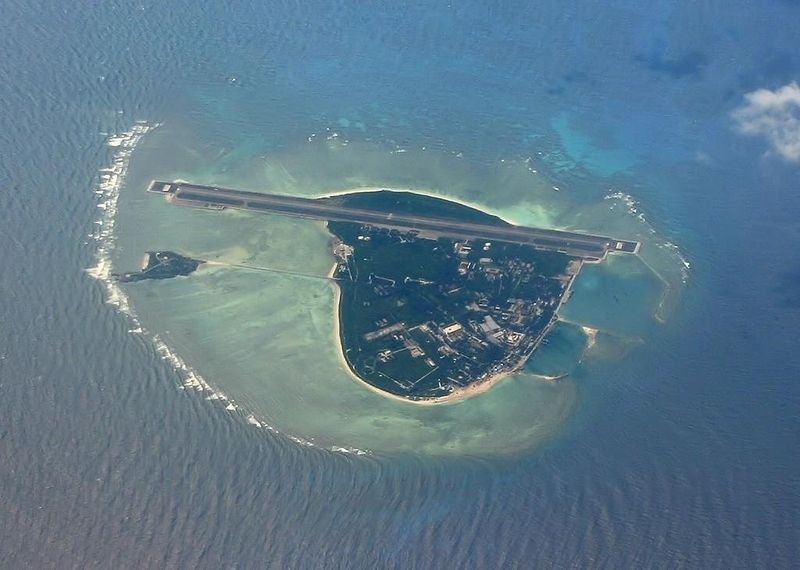Sansha's government administers several island groups and undersea atolls, including the Spratly Islands, the Paracel Islands — of which Woody Island is the largest, the completely submerged Macclesfield Bank and a vast swath of the surrounding ocean. Sansha means "three sandbanks" in Mandarin and refers to these three groups of islands and atolls. The total land area of Sansha is less than 13 square km, but the water area claimed by the city approaches nearly 2-million square kilometers. This makes Sansha simultaneously the smallest and the largest city in China — smallest by land area and population, but largest by total area.

An aerial view of Woody Island, or Yongxing island.
The islands in the South China Sea are contested by several countries — Brunei, Malaysia, the Philippines, Vietnam, and Taiwan, over and above China. The Paracel Islands are claimed by Vietnam, but is now entirely controlled by China. The Spratly group is also claimed in entirety or parts by Vietnam, which occupies the largest number of islands, as well as by Malaysia, the Philippines, and Taiwan. The Macclesfield Bank, a vast, totally submerged atoll with rich fishing grounds to the east of the Paracels is also claimed by Vietnam, the Philippines, and Taiwan.
By establishing the city of Sansha in the disputed, resource-rich South China Sea, China is essentially asserting its right to the islands, and consequently its right to fish and drill in the vast oil reserves that is believed to be under the seabed. The area is also extremely significant in a geopolitical sense, being the second most used sea lane in the world. One-third of the world's shipping transit through its waters.
Since the announcement of Sansha, development on Wood Island has been undergoing at a swift pace, even as Vietnam and the Philippines continue to voice their protest. The Philippines said it does not recognize the city or its jurisdiction, and Vietnam said China's actions violated international law. The US government also voice its concern by stating, "we remain concerned should there be any unilateral moves of this kind that would seem to prejudge an issue."
Living facilities on Woody Island have been built along with official buildings, banks, libraries, an observatory, hotels, hospitals and other important buildings. The city has also recently started taking on tourists, and for that purpose built two museums. Other tourist attractions include a couple of monuments and towers left by the Imperial Japanese Army during WWII.



An aerial view of Woody Island, or Yongxing island.

Located five miles Southwest of Yongxing Island, Qilianyu consists of seven small islands, and is part of Sansha.

An aerial view of the Islets and reefs in the Yongle archipelago in Sansha.

An aerial view of the village on the Yagong Islet in Yongle archipelago in Sansha.

Fishing boats and public service vessels rest along Woody Island harbor.

The government building of Sansha was built on Woody Island.

The view of Woody Island from a nearby jetty.

A sign at Woody Island, which is the center of government for Sansha.

An aerial view of a port located at the southern part of Woody Island
Source
